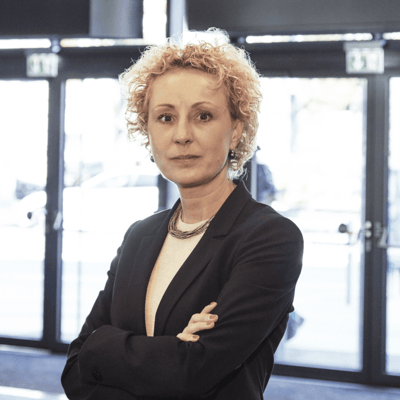 Dr. Rozgonyi is a senior international media, telecommunication and IP legal and policy expert. She is currently Assistant Professor at the Department of Communication of the University of Vienna.
Dr. Rozgonyi is a senior international media, telecommunication and IP legal and policy expert. She is currently Assistant Professor at the Department of Communication of the University of Vienna.
She works with international and European organizations (such as ITU/UN, UNESCO, Council of Europe, European Commission, World Bank InfoDev, OSCE and BBC MA), with national governments, regulators, also corporate, as a senior adviser on media freedom, spectrum policy and copyright legal frameworks with regards to digital audiovisual archives. Between 2004-2010 she served as the Chairperson (Deputy Chairperson) of the Telecoms Authority in Hungary. Her expertise lies in media and telecommunications policy-making and regulation with extensive experience in legal reform work.
Her research interests are specific aspects of media governance, especially the governance of spectrum and copyright, the representation of public interest, of democratic values and fundamental rights within complex and highly 'technocratized' policy and regulatory processes. Krisztina’s recent research and policy work focused on responding to disinformation online addressing human right aspects for the Venice Commission and policy implications as well. Moreover, she explored more closely the regulatory aspects of online platforms and proposed potential regulatory models accordingly. She was also engaged with the OSCE Representative on Media Freedom as an expert on Artificial Intelligence&media pluralism.
She holds a PhD in Communication Sciences (University of Vienna); a Doctor Juris in Law and State Sciences (Eötvös Loránd University, Faculty of Law, Budapest); an MA in Communication Sciences (Eötvös Loránd University, Faculty of Liberal Arts, Budapest); and an MBA (Central European University).
Dr Rozgonyi is a regular speaker at the Annenberg-Oxford Media Policy Summer Institute at Oxford University and has taught at ELTE University, Budapest; Janus Pannonius University, Faculty of Law, Department of Public Law, Pécs. She is a member of the advisory board of the Journal of Digital Media.
She speaks English, German and Hungarian.
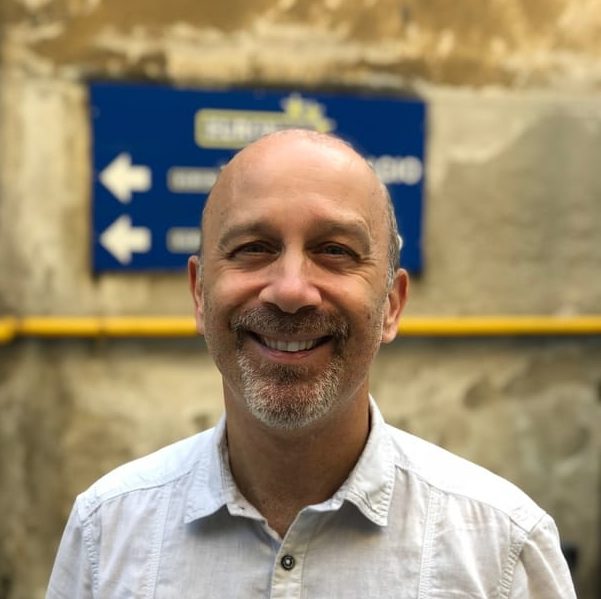 Paolo Boldi is full Professor at the Università degli Studi di Milano since 2015, where he is currently the coordinator of the PhD Program in Computer Science and of the Computer Science Degree.
Paolo Boldi is full Professor at the Università degli Studi di Milano since 2015, where he is currently the coordinator of the PhD Program in Computer Science and of the Computer Science Degree.
His main research topics are algorithms and data structures for big data, web crawling and indexing, graph compression, succinct and quasi-succinct data structures, distributed systems, anonymity and alternative models of computation. Recently, his works focused on problems related to complex networks (especially, the World-Wide Web, social networks and biological networks), a field where his research has also produced software tools used by many people working in the same area.
He chaired many important conferences in this sector (e.g., WSDM, WWW, ACM WebScience), and published over one hundred papers; he was also recipient of three Yahoo! Faculty Awards and co-recipient of a Google Focused Award, and member of many EU research projects. He was keynote speaker at many conferences such as ECIR, SPIRE, MFCS, IIR and invited scholar at the Institut des Hautes Études Scientifiques.
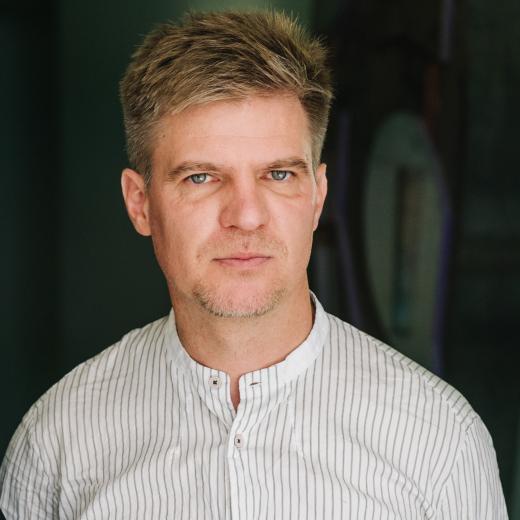 Paul Radu is co-founder and chief of innovation at OCCRP. He founded the organization in 2007 with Drew Sullivan. He leads OCCRP’s major investigative projects, scopes regional expansion, and develops new strategies and technology to expose organized crime and corruption across borders.
Paul Radu is co-founder and chief of innovation at OCCRP. He founded the organization in 2007 with Drew Sullivan. He leads OCCRP’s major investigative projects, scopes regional expansion, and develops new strategies and technology to expose organized crime and corruption across borders.
Paul initiated and led the award-winning Russian, Azerbaijani, and Troika Laundromat investigations, and coined the term “laundromat” to define large scale, all-purpose financial fraud vehicles that are used to launder billions of dollars. He is a co-creator of Investigative Dashboard — a research desk that sifts through datasets to help journalists trace people, companies, and assets — and the Visual Investigative Scenarios software, a tool that lets reporters sketch out the people, institutions, and connections in criminal networks so people can easily follow complex investigations. He is also a co-founder of RISE Project, a platform for investigative reporters in Romania.
Paul is an Ashoka Global Fellow and has held a number of other fellowships, including the Milena Jesenska Press Fellowship, the Rosalyn Carter Fellowship for Mental Health Journalism, the Knight International Journalism Fellowship with the International Center for Journalists as well as a 2009-2010 Stanford Knight Journalism Fellowship. He is a board member for the Global Investigative Journalism Network, a member of the International Consortium of Investigative Journalists, a member of the jury for the global Sigma Data Journalism Awards, and a member of the Allard Prize advisory board.
Paul is a winner of the Daniel Pearl Award, the Global Shining Light Award, the European Press Prize, and the Skoll Award for Social Entrepreneurship, and was part of the Panama Papers team that won the 2017 Pulitzer Prize in Journalism. He has also authored or contributed to handbooks and digital guides such as “Against Corruption: a collection of essays,” “The Data Journalism Handbook,” and “Follow the Money — A Digital Guide to Tracking Corruption.”
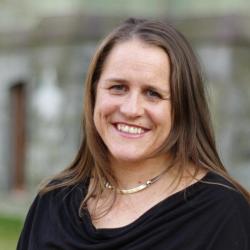 Dr. Claire Wardle is a leading expert on user generated content, verification and misinformation. She is co-founder and director of First Draft, the world’s foremost nonprofit focused on research and practice to address mis- and disinformation. In 2017 she co-authored a report for the Council of Europe entitled, Information Disorder: Toward an interdisciplinary framework for research and policymaking. Dr. Wardle is a co-founder and Executive Chair of First Draft, the world’s foremost nonprofit focused on research and practice to address mis- and disinformation. Previously, Dr. Wardle was a Research Fellow at the Shorenstein Center for Media, Politics and Public Policy, and also the Research Director at the Tow Center for Digital Journalism at Columbia Journalism School. She has worked with newsrooms and humanitarian organizations around the world, providing training and consultancy on digital transformation. Dr. Wardle earned a PhD in communications and an MA in political science from the University of Pennsylvania. She is based in New York City.
Dr. Claire Wardle is a leading expert on user generated content, verification and misinformation. She is co-founder and director of First Draft, the world’s foremost nonprofit focused on research and practice to address mis- and disinformation. In 2017 she co-authored a report for the Council of Europe entitled, Information Disorder: Toward an interdisciplinary framework for research and policymaking. Dr. Wardle is a co-founder and Executive Chair of First Draft, the world’s foremost nonprofit focused on research and practice to address mis- and disinformation. Previously, Dr. Wardle was a Research Fellow at the Shorenstein Center for Media, Politics and Public Policy, and also the Research Director at the Tow Center for Digital Journalism at Columbia Journalism School. She has worked with newsrooms and humanitarian organizations around the world, providing training and consultancy on digital transformation. Dr. Wardle earned a PhD in communications and an MA in political science from the University of Pennsylvania. She is based in New York City.
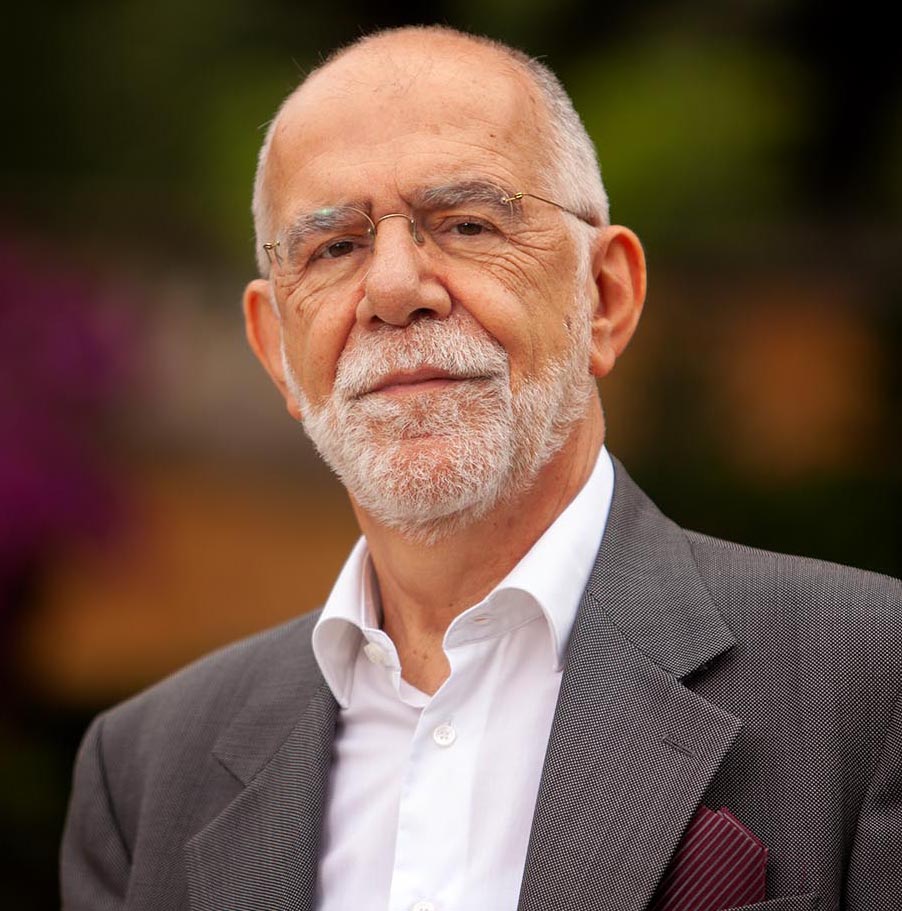 Pier Luigi Parcu is part-time Professor at the European University Institute (EUI) from 2010. He is currently Area Director of the FSR Communications & Media, Director of the Florence Competition Programme and Director of the Centre for Media Pluralism and Media Freedom.
Pier Luigi Parcu is part-time Professor at the European University Institute (EUI) from 2010. He is currently Area Director of the FSR Communications & Media, Director of the Florence Competition Programme and Director of the Centre for Media Pluralism and Media Freedom.
Since 2004 he has been Chairman of a consultancy company specialised in antitrust and regulation. From 2000 to 2003, he was CEO of the public company running the Italian Electricity Grid (GRTN). From 1991 to 2000 he was the Director of Investigation at the Italian Competition Authority (AGCM). Previously, he served as Chief Economist at the Italian Security and Exchange Commission (CONSOB) and as Economist at the International Monetary Fund (IMF).
He holds a Ph.D. in Economics from the University of California at Los Angeles (UCLA). His research interest in the area of law and economics focuses on the interaction between regulation and antitrust in shaping firms’ behaviour. Most recently he is writing on innovation, standardization and platforms. As regards research in the media area, Professor Parcu’s interests focus primarily on the effects of media concentration on pluralism and freedom of expression and on the influence of online business models on legacy media and professional journalism.
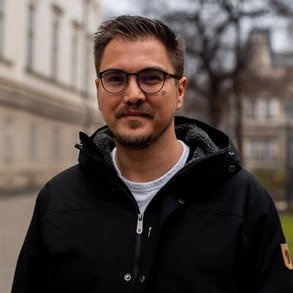 Attila Batorfy is a journalist and data visualisation expert working at Átlátszó, and head of the project of the graphic team ATLO. He creates data-based, media literacy and digital humanities projects in collaboration with Transparency International Hungary, Center for Independent Journalism Budapest, Mérték Media Monitor, the Asimov Foundation, Central European University and the Association of Hungarian Content Providers.
Attila Batorfy is a journalist and data visualisation expert working at Átlátszó, and head of the project of the graphic team ATLO. He creates data-based, media literacy and digital humanities projects in collaboration with Transparency International Hungary, Center for Independent Journalism Budapest, Mérték Media Monitor, the Asimov Foundation, Central European University and the Association of Hungarian Content Providers.
He is a teacher of journalism, media studies and information graphics at the Media Department of Eötvös Loránd Science University, and research fellow and data advisor at the Central European University's Center for Media, Data and Society and serve on the editorial board of Médiakutató, a quarterly scientific journal of Media Studies. Attila also teaches data visualisation at Budapest University of Technology and Economics. He received an MA degree in media studies and art history. He is currently writing his Phd-thesis on the history of information graphics in Hungary.

 Dr. Rozgonyi is a senior international media, telecommunication and IP legal and policy expert. She is currently Assistant Professor at the
Dr. Rozgonyi is a senior international media, telecommunication and IP legal and policy expert. She is currently Assistant Professor at the  Paolo Boldi is full Professor at the Università degli Studi di Milano since 2015, where he is currently the coordinator of the PhD Program in Computer Science and of the Computer Science Degree.
Paolo Boldi is full Professor at the Università degli Studi di Milano since 2015, where he is currently the coordinator of the PhD Program in Computer Science and of the Computer Science Degree. Paul Radu is co-founder and chief of innovation at OCCRP. He founded the organization in 2007 with Drew Sullivan. He leads OCCRP’s major investigative projects, scopes regional expansion, and develops new strategies and technology to expose organized crime and corruption across borders.
Paul Radu is co-founder and chief of innovation at OCCRP. He founded the organization in 2007 with Drew Sullivan. He leads OCCRP’s major investigative projects, scopes regional expansion, and develops new strategies and technology to expose organized crime and corruption across borders. Dr. Claire Wardle is a leading expert on user generated content, verification and misinformation. She is co-founder and director of First Draft, the world’s foremost nonprofit focused on research and practice to address mis- and disinformation. In 2017 she co-authored a report for the Council of Europe entitled,
Dr. Claire Wardle is a leading expert on user generated content, verification and misinformation. She is co-founder and director of First Draft, the world’s foremost nonprofit focused on research and practice to address mis- and disinformation. In 2017 she co-authored a report for the Council of Europe entitled, Pier Luigi Parcu is part-time Professor at the European University Institute (EUI) from 2010. He is currently Area Director of the FSR Communications & Media, Director of the Florence Competition Programme and Director of the Centre for Media Pluralism and Media Freedom.
Pier Luigi Parcu is part-time Professor at the European University Institute (EUI) from 2010. He is currently Area Director of the FSR Communications & Media, Director of the Florence Competition Programme and Director of the Centre for Media Pluralism and Media Freedom. Attila Batorfy is a journalist and data visualisation expert working at Átlátszó, and head of the project of the graphic team ATLO. He creates data-based, media literacy and digital humanities projects in collaboration with Transparency International Hungary, Center for Independent Journalism Budapest, Mérték Media Monitor, the Asimov Foundation, Central European University and the Association of Hungarian Content Providers.
Attila Batorfy is a journalist and data visualisation expert working at Átlátszó, and head of the project of the graphic team ATLO. He creates data-based, media literacy and digital humanities projects in collaboration with Transparency International Hungary, Center for Independent Journalism Budapest, Mérték Media Monitor, the Asimov Foundation, Central European University and the Association of Hungarian Content Providers.